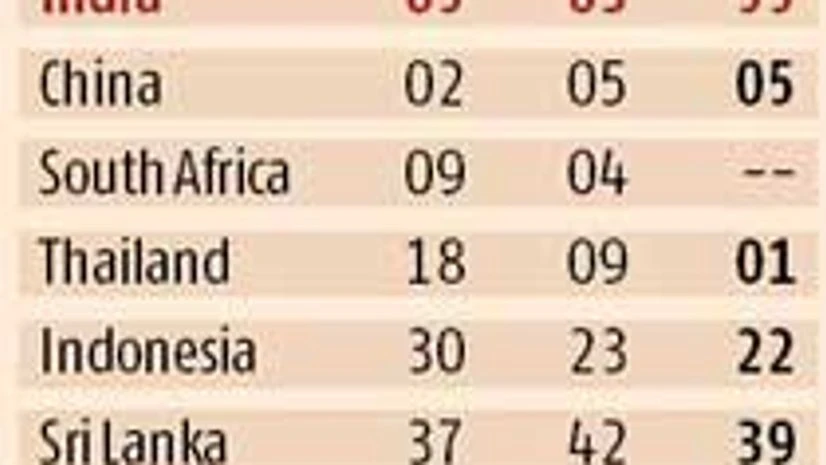India has improved its position in the Global Hunger Index. The country climbed eight positions in the index from 63 last year to 55 this year, though it still trails nations like Malawi, Ghana and Suriname.
A significant reduction in the number of underweight children as well as the successful roll-out and expansion of programmes like the Mahatma Gandhi National Rural Employment Guarantee Scheme (MGNREGS) and the Public Distribution System helped India get a better rank.
However, some poor African nations — like Suriname at 9, Ghana at 16 and Malawi at 32 — had better rankings.
The index is prepared by International Food Policy Research Institute (IFPRI), along with Welthungerhilfe and Concern Worldwide.

China managed to pull an equal number of people out of hunger in 2014 as in 2013, and it acquired the fifth position among 76 countries that have managed to elevate a significant number of people.
In India’s case, the index has shown a consistent fall since 2000, when it had 25.5 points.
“India has made a significant improvement in number of underweight children under five and the prevalence of under weight in children fell by almost 13 percentage points between 2005-2006 and 2013-2014. It no longer ranks second-to-last in the world on underweight in children,” the report said.
The IFPRI added that the sharp drop by India in the Global Hunger Index (GHI) score outpaces the drop seen in other South Asian countries.
“India is no longer in the category with ‘alarming’ hunger and has moved to ‘serious’,” IFPRI said. It said the country’s overall score has improved due to the government’s roll-out and expansion of several programmes that target under-nutrition, including the Integrated Child Development Services and the National Rural Health Mission.
The Supreme Court has also appointed a commission to monitor the delivery of food-based programmes.
The IFPRI said indirect factors that contributed to less hunger in India may have included the MGNREGA and reforms to the PDS that distributes food among the poor.
On a long-term basis, the IFPRI data showed that in the last 14 years, GHI scores for Southeast Asia showed the steepest decline compared to other parts of the globe.
South Asia reduced its GHI score by three points between 1990 and 1995, mainly through a decline of almost 9 percentage points in underweight children. Following a 10-year slowdown, the region has made considerable progress again since 2005.
Several Southeast and South Asian countries, including Vietnam, Cambodia, Thailand and Bangladesh, have shown dramatically improved scores since 1990, the IFPRI said.

)
